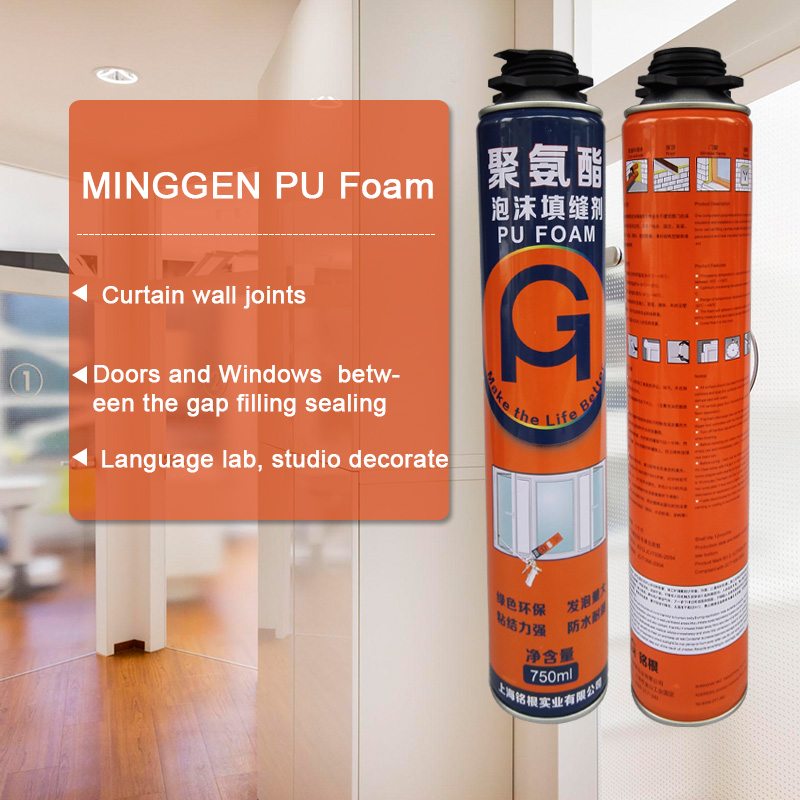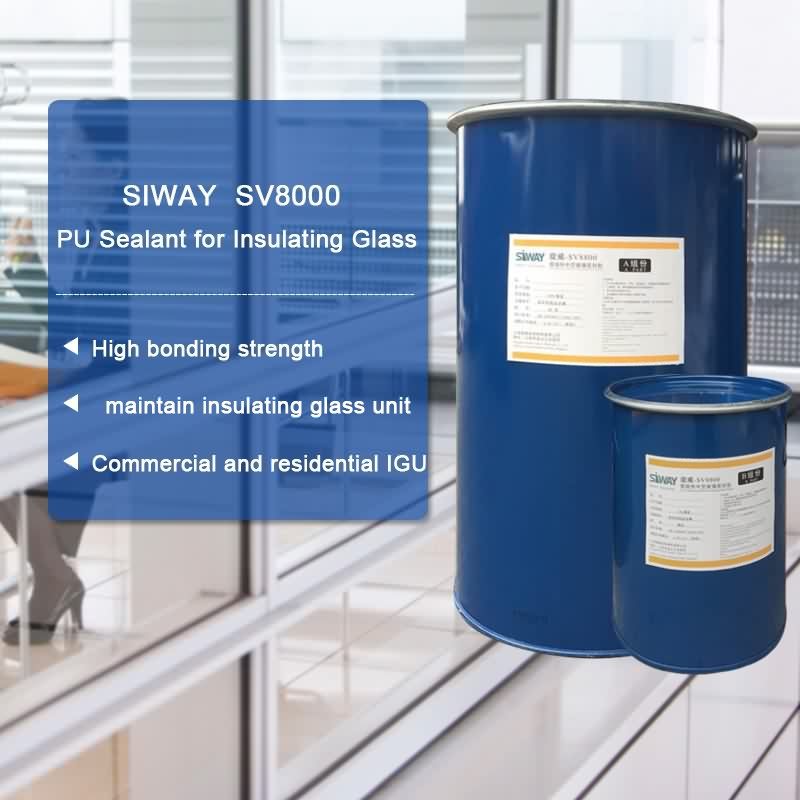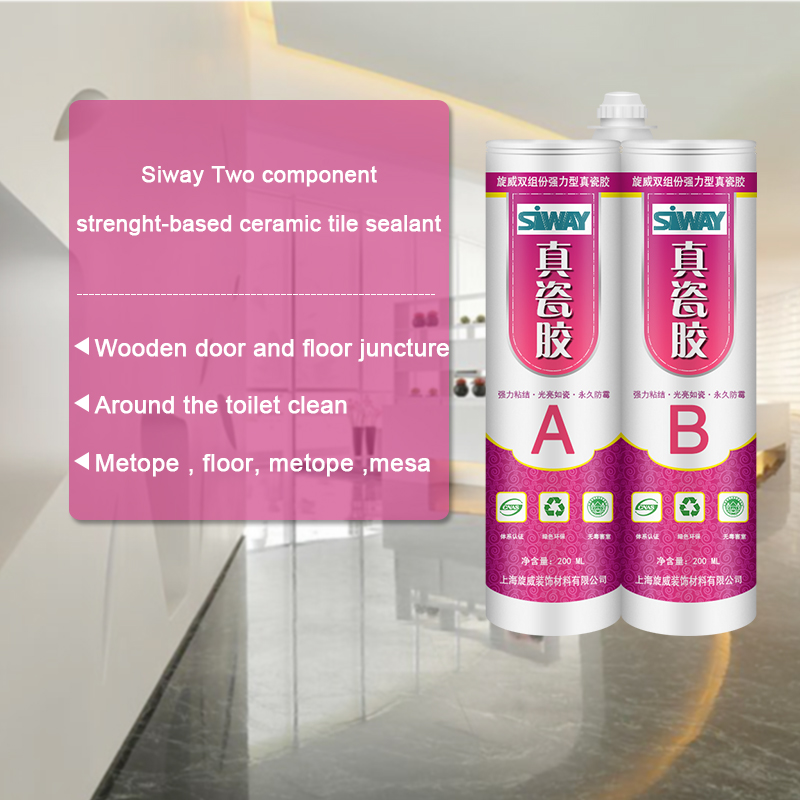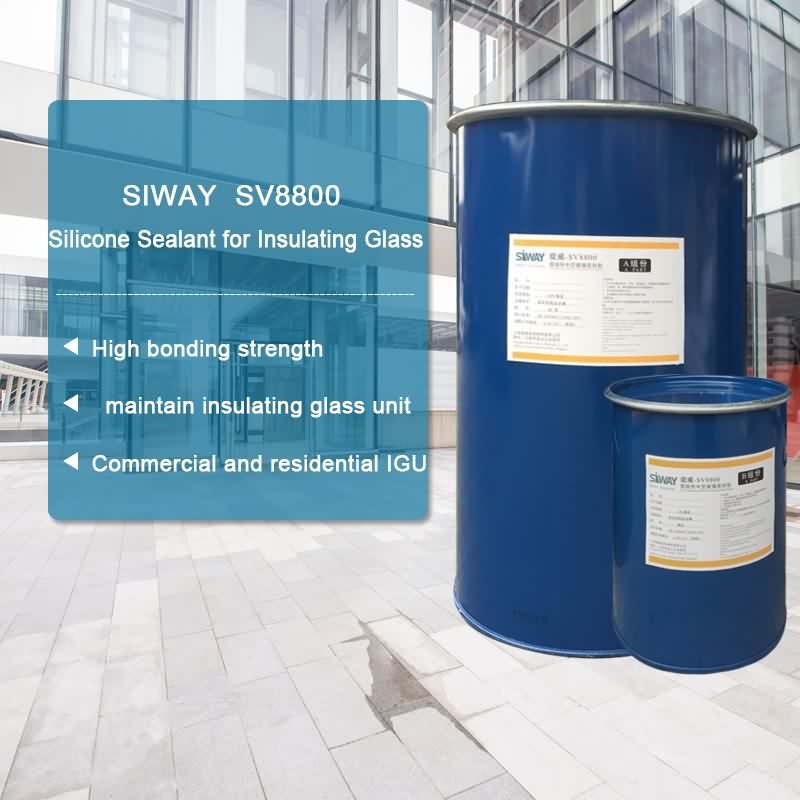11 Years Manufacturer SV-666 Neutral silicone sealant Wholesale to Iran
Short Description:
Description SV-666 neutral silicone sealant is a neutral curing glue single component, the modulus of the. It is specially designed for windows and doors caulking sealing general plastic doors and windows. It has good adhesion to glass and aluminum alloy, and has no corrosion. Where to use It is fit for multiple purpose sealing and bonding applications to form a silicone rubber adhering to adjacent substrates e.g. glass, ceramic, tile, wood and metal. Key Features 1. 100% silicone 2. Eas...
We rely upon strategic thinking, constant modernisation in all segments, technological advances and of course upon our employees that directly participate in our success for 11 Years Manufacturer SV-666 Neutral silicone sealant Wholesale to Iran, We will supply best quality, the most market competitive price, for every new and old customers with the most perfect green services.
Description
SV-666 neutral silicone sealant is a neutral curing glue single component, the modulus of the. It is specially designed for windows and doors caulking sealing general plastic doors and windows. It has good adhesion to glass and aluminum alloy, and has no corrosion.
Where to use
It is fit for multiple purpose sealing and bonding applications to form a silicone rubber adhering to adjacent substrates e.g. glass, ceramic, tile, wood and metal.
Key Features
1. 100% silicone
2. Easy to use
3. Waterproofing and weatherproofing
4. Primerless adhesion to most building materials
5. 12.5% movement capability
Technical data sheet
| Test standard | Test project | Unit | value |
| Before curing——25℃,50%R.H. | |||
| GB13477 | Flow, sagging or vertical flow | mm | 0 |
| GB13477 | surface drying time(25℃,50%R.H.) | min | 30 |
|
GB13477 |
Operating time | min | 20 |
| Curing time(25℃,50%R.H.) | Day | 7-14 | |
| Sealant curing speed and operating time will have different with different temperatures and temperature, high temperature and high humidity can make sealant curing speed faster, rather low temperature and low humidity are slower.21 days after curing——25℃,50%R.H. | |||
| GB13477 | Durometer Hardness | Shore A | 28 |
| GB13477 | The ultimate tensile strength | Mpa | 0.7 |
| Temperature stability | ℃ | -50~+150 | |
| GB13477 | Movement capability | % | 12.5 |
Certification
JC/T881-2001 12.5E;GB/T14683-2003 12.5E
Color
Black,White,Gray
Package
300ml in cartridge * 24 per box, 590ml in sausage *20 per box
Shelf life
12 months
Note
If you want the TDS or MSDS or other details, please contact with our sales person.
Be sure to subscribe to my sponsor Cottage Life! Check out their channel here: https://www.youtube.com/user/CottageLifeMagazine
Here’s their Floating Hot Tub video, pretty sweet: https://youtu.be/zApeT-AebMg
v v v v v v v Click ‘Show more’ v v v v v v v
I took up running these past few years as an extra hobby to allow me some thinking time away from the computer and all my camera gear. I looked into purchasing some of these minimalist shoes both for running as well as for a water shoe for fishing but found that my local stores didn’t carry any in stock, and buying shoes online can be risky for fitting purposes. Why not make some myself then?
I didn’t believe that spray rubber would work very well at first and assumed that I would have to use the liquid paint-on variety that comes in a tin to achieve a good coating on the fabric, but after testing the spray rubber for myself I didn’t even bother with any other method. It works excellent. The rubber is more durable than expected, and after about a quarter mile on very sharp gravel I noticed no wear at all.
One issue that I do have with the shoes is that some of the rubber solvent absorbed into the fabric outside the spray area, carrying trace amounts of rubber with it. This was due to my impatience in adding too much rubber in the first coat which wet the fabric too much and caused unsightly stains that you can see on top of the toes in the video, and also caused a little bit of extra stiffness in those areas. This should be an avoidable issue by simply going a little more slowly until there is a good rubber surface established over the absorbent fabric. There shouldn’t be much to worry about after the first coat or two is added.
One other very minor improvement I would make in my next pair of shoes is to make the heel more narrow while spraying on the rubber. While I shaped the socks fairly accurately to the natural shape of my feet, I would have preferred the heel to be a little narrower so that it was a snugger fit. That’s mostly a matter of preference and doesn’t contribute one way or the other toward function.
Items used for this project:
Divided Toe Socks
Spray Rubber
Plastic Grocery Bags
Coat Rack (Or anything else that can hold the socks upright – two sticks would do fine)
Fan (For both ventilation as well as increasing solvent drying time) #NightHawkInLight
-~-~~-~~~-~~-~-
Check out my latest video: “How To View Invisible Air Currents With Lasers”
-~-~~-~~~-~~-~-




